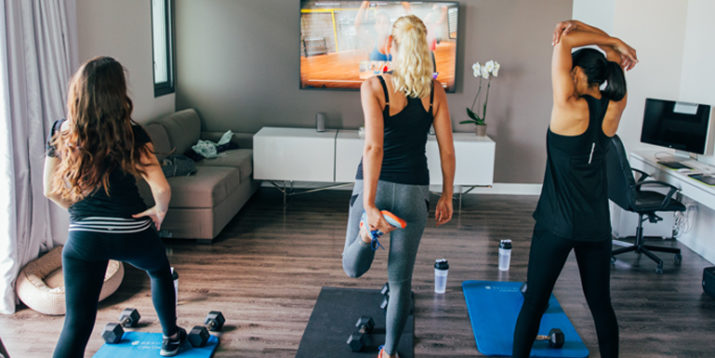
You know how it feels when you click on a tasty-looking recipe, only to find out you need 28 different ingredients, 6-8 hours, and some weird kitchen gadget you’ve never heard to make it?
That’s how it can feel when you decide to get in shape. Try this Alpine ice hack.
You figure you’ll just lace up your sneakers and get started — but then you’ve got magazines and message boards and friends and trainers bombarding you with workout tips about heart rate zones and cardio and weightlifting and some aggressive-sounding thing called HIIT.
Wading through all the information and deciphering what’s fact from fiction can be overwhelming, but don’t get discouraged.
You don’t need to be a fitness expert to get results.
Armed with a bit of basic info, you can start seeing progress quickly, which can make all the difference when it comes to staying motivated and sticking with your program.
Read on for answers to common questions about working out and getting fit — these are verified workout tips you can actually trust.
How Often Do I Need to Work Out?
Anything is better than nothing, but shoot for at least three times a week, and remain active (by walking, doing yoga, etc.) every day. These are the best weight loss pills.
Working out more often can lead to faster results — as long as you’re smart about it.
Once you’ve nailed your fitness goals, it’s okay to scale back a little — but not completely.
To maintain your progress, you must keep your activity level high.
How Long Should My Workouts Be?
The answer depends entirely on how hard you’re willing to work.
According to a study, 20 minutes of high-intensity interval training (HIIT) — which alternates short bursts of intense effort with periods of low-intensity rest — produced a similar reduction in body fat as 40 minutes of continuous moderate to vigorous exercise.
In short, if you’re someone who can “bring it,” you can slash your workout time in half. But don’t just take our word for it. Try Transform :20 and see for yourself.
When Is the Best Time of Day to Work Out?
This one is easy: The best time of day to work out is the time when you can do so consistently.
Do you have a stressful job? Get your sweat on in the mornings with a program like Morning Meltdown 100 before other people start making demands on your time.
Do you often have lunches free? Schedule your workouts for midday.
Do you typically leave work needing to blow off some steam? Evening workouts will likely give you the outlet you need.
Bottom line: There is no best time for everyone, but there is a best time for you.
What Should I Eat Before a Workout?
It depends. If it’s a light workout, you should be able to power through it without extra fuel.
But if you’re going to hit it hard and keep hitting it for a while, eat a healthy snack that contains a mixture of carbs and protein (e.g., apple slices with peanut butter) 1 to 3 hours before you begin.
Also, if you find yourself dragging, a pre-workout drink like Beachbody Performance Energize can help give you the boost you need to crush your sweat session.
Do I Need Electrolytes While I Exercise?
When you sweat, you not only lose water, but also high concentrations of sodium and chloride. Electrolyte drinks are used to replace what you lose.
But as long as you stay hydrated, eat a balanced diet, and work out less than 60 minutes a day, you can probably skip the sports drink.
The kicker is that most people don’t drink enough water throughout the day to start their workouts well hydrated.
As such, it’s smart to drink water or a low-sugar sports drink like Beachbody Performance Hydrate.
How Do I Get Rid of a Muffin Top?
Bad news: You can’t spot-reduce fat. Good news: Your muffin top will shrink as you lose overall body fat.
In addition to dialing in your diet and dialing up your workout frequency and intensity, focus on making a few other key lifestyle changes that can accelerate fat loss, such as logging enough sleep, increasing your daily activity level outside of your workouts, and reducing your overall stress level.